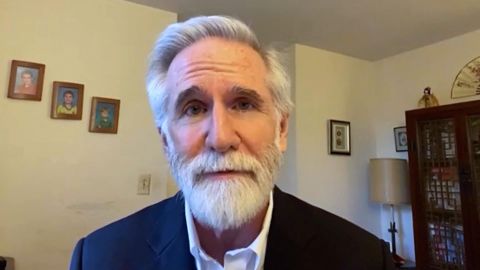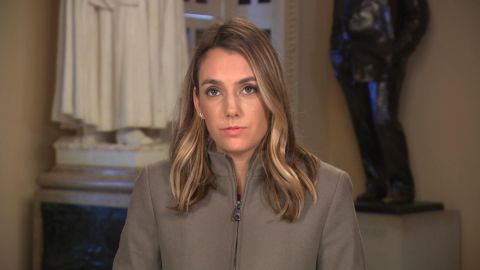Read Transcript EXPAND
LAUREN FOX, CNN CONGRESSIONAL CORRESPONDENT: Well, that’s exactly right. I mean, today, the House Progressive Caucus met privately after Biden came and spoke to the entire Democratic Caucus in the House of Representatives. And coming out of that meeting, the leader of the congressional Progressive Caucus, Pramila Jayapal, told reporters that the plan is still to vote no if a bipartisan infrastructure bill comes to the floor without an assurance that right behind it is going to be that Build Back Better plan or that larger social safety net bill. That’s a problem for House leadership, and specifically a problem for the president as he goes abroad and really wanted to have something in hand to tout. Now, does this start to evolve or change throughout the day? Obviously, House Speaker Nancy Pelosi is gifted at getting the votes that she needs. She is consistently able to find the votes on the floor of the House of Representatives if she brings something to the floor. But it’s a big if right now. Despite the fact that House leadership has made it clear that it is their intention to bring this bipartisan infrastructure bill to the floor, there is no guarantee right now that it would have the votes to pass, in part because progressives say they need more assurances from those moderate senators, Joe Manchin and Kyrsten Sinema, that they would actually support the framework that the president laid out to them today.
BIANNA GOLODRYGA: Yes. And on that point, our own colleagues Annie Grayer and Daniella Diaz report that some of those progressives in the House, Cori Bush says she feels bamboozled and that Senators Manchin and Sinema have not been — quote — “good-faith actors.” Congresswoman Tlaib says hell no on a bipartisan infrastructure vote today. How significant are these biting words?
FOX: Well, we can do the math right here. The House speaker can only afford to lose three Democratic votes if she brings that bipartisan bill to the floor. Right there, you have counted three people who are saying that they would not vote yes on this piece of legislation if it came to the floor. And the Congressional Progressive Caucus is dozens of members. So it’s a huge problem right now for leadership. And it’s a huge problem, really, for the president, because, for a long time, the president has privately tried to get votes by cajoling, by entertaining folks over at the White House, by trying to listen. Today, he really made the hard sell: Look, I need my caucus with me. And, clearly, even after that, it is not making a difference among the House Progressive Caucus, and it’s a major problem.
GOLODRYGA: Yes, it is. There’s a big difference, as you and I both know, in the language here between bamboozled is how Congresswoman Bush describes it, and President Biden himself describing this as a compromise of sorts. I know you will be covering this for us in the ensuing hours. Lauren, thank you so much for joining us.
About This Episode EXPAND
Democrats are at a pivotal moment in the passage of their infrastructure bill. Fossil fuel giant CEOs testified about whether they knew their products were fueling climate change. Facebook CEO outlines a new vision for the company, but experts warn it hasn’t done enough. Kim Ghattas focuses on three places that once had real hope for democracy. The supply chain crisis is crippling the U.S.
LEARN MORE




